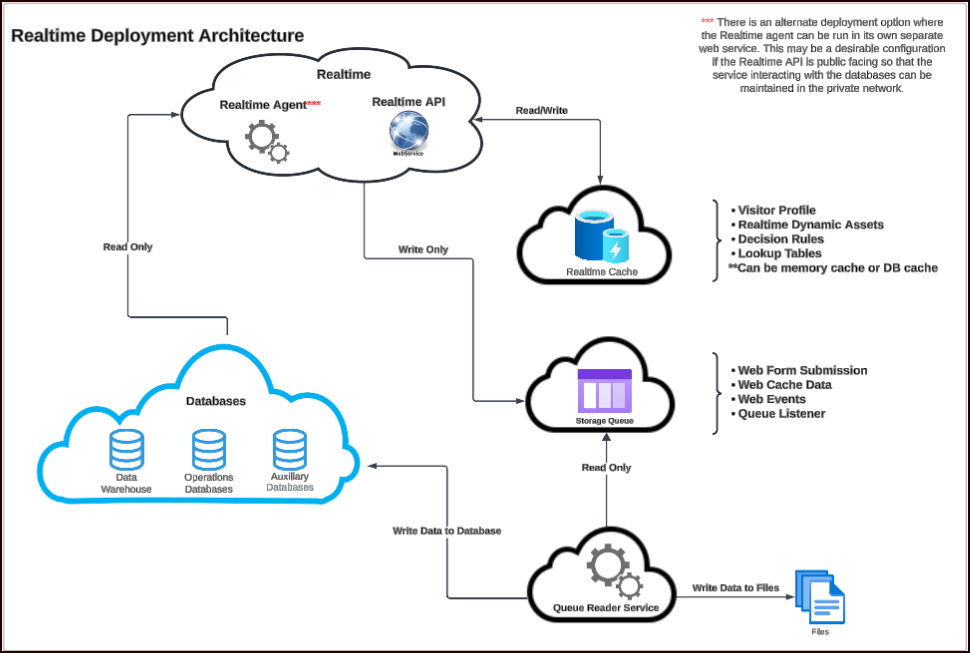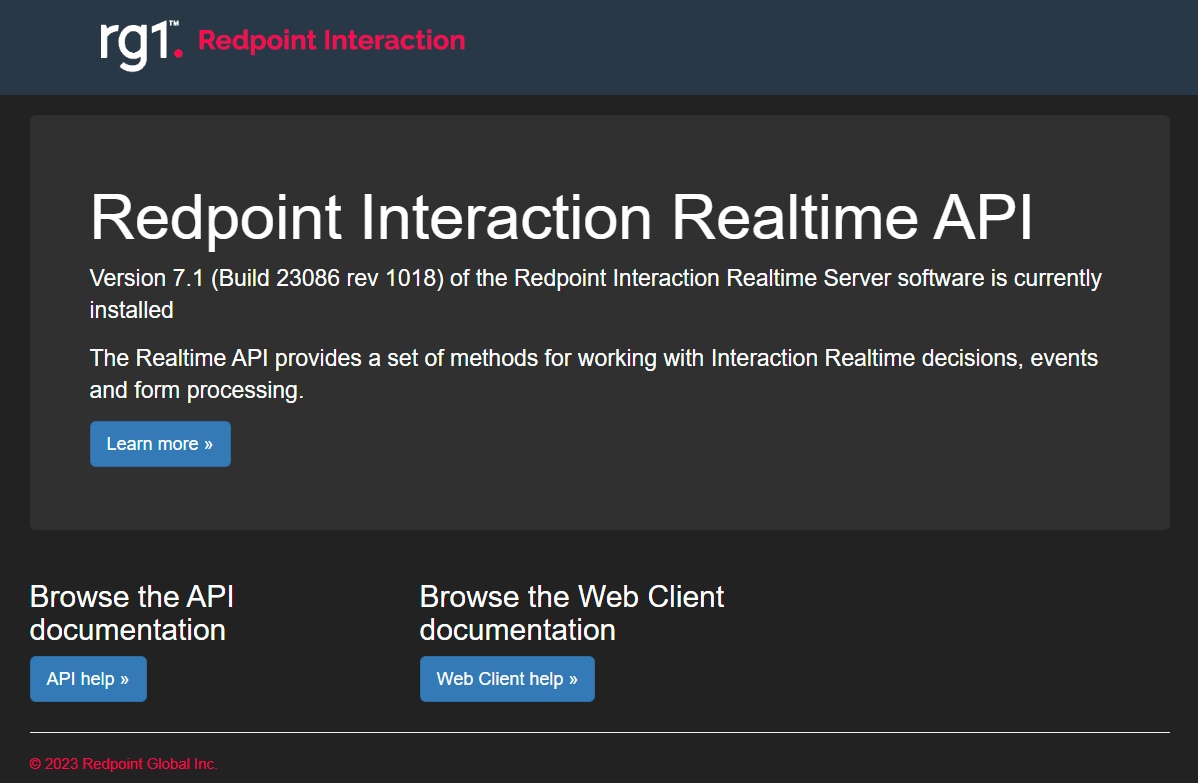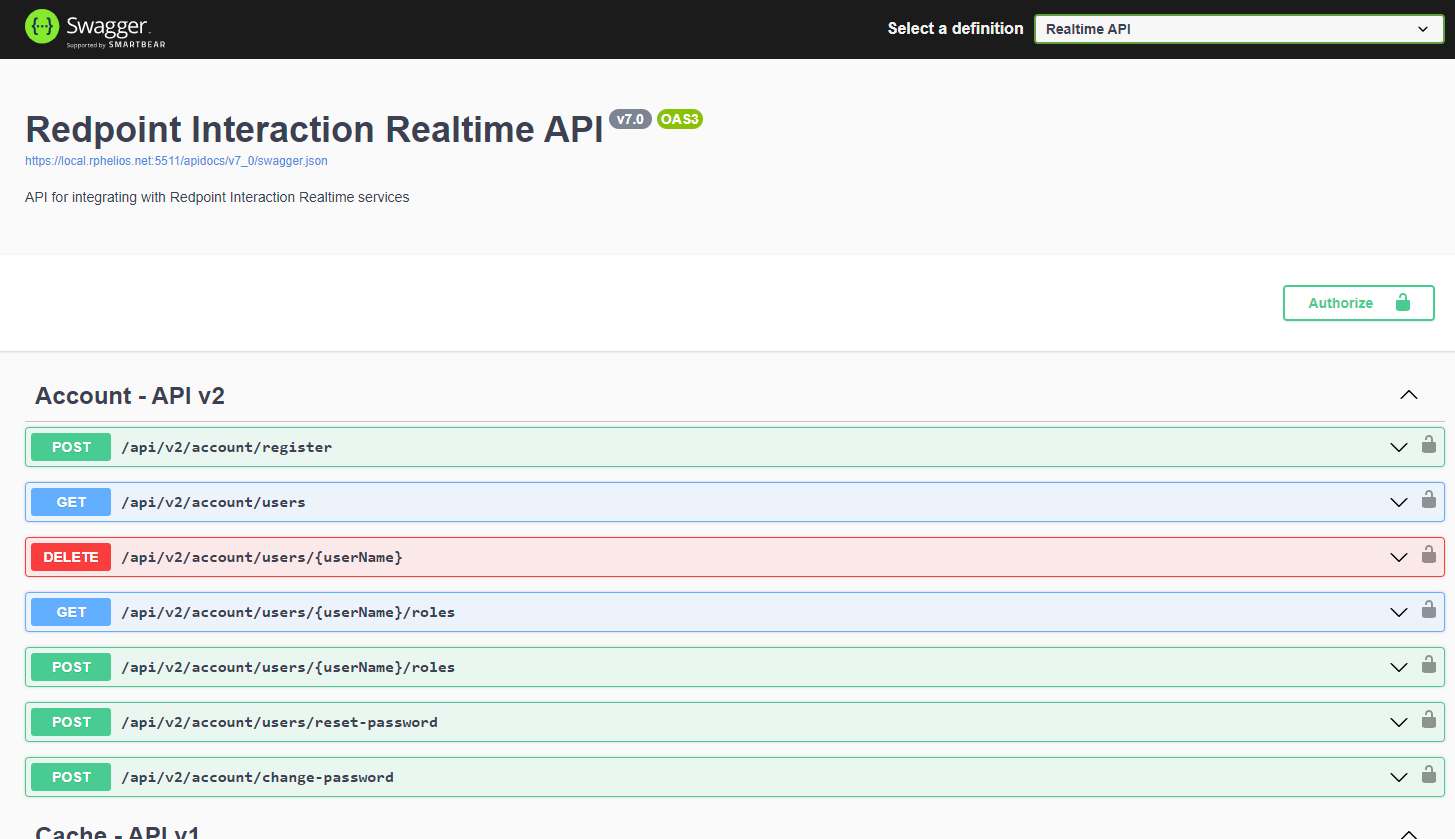Overview
The following sections describe RPI Realtime’s components.

Refer to the GitHub readme for information about deploying RPI Realtime.
RPI Realtime API
The RPI Realtime API is an interface that provides functionality such as:
-
The management of visitor profiles.
-
The ability to make content applicability decisions.
-
The processing of RPI web forms.
-
The handling of communication with the RPI application server.
RPI’s Realtime capabilities are exposed via a website, which provides an API, and, optionally, its associated documentation.
You can access the site by navigating to the RPI Realtime website, either directly within a browser, or using the Browse command in Internet Information Services (IIS).
When you do so, the following web page is displayed:

If enabled, clicking the button in the API Documentation section displays details of the RPI Realtime API’s endpoints.

Optionally access the online version of the API documentation.
Realtime Agent Service
The RPI Realtime Agent Service is an ASP.NET Web API service which provides the ability to load information from the RPI app server, including:
-
Cached attribute lists
-
Message history
-
Page and decision metadata
-
Database connectivity to facilitate usage of the same as a cache
Realtime cache
The RPI Realtime cache is used to persist data such as the following:
-
Visitor profiles
-
Rules as defined in Realtime decisions
-
Text content (if published directly from a smart asset)
A variety of technologies can be used to host the Realtime cache, including:
-
Azure Redis Cache
-
Cassandra
-
CosmosDB
-
Google BigTable
-
MongoDB
-
Redis
-
SQL Server
Refer to Supported connectors for information about Cache providers.
Queues
RPI Realtime makes use of the following queues, which are used to provide asynchronous connectivity from the RPI Realtime API to the RPI application server:
-
Form submission: used to process data submitted in a web form.
-
Web events: used to process web events other than form submissions.
-
Visitor profile: used to process visitor profile data from the Realtime cache to a database or file.
Each queue has its own matching system configuration setting that must be set appropriately.
Queues can be hosted using a variety of technologies. Queue Providers can be created and managed in a dedicated configuration interface. The following technologies can be used to host RPI Realtime queues:
-
Amazon Simple Queue Service (SQS)
-
Azure Event Hubs
-
Azure Service Bus
-
Azure Storage Queues
-
Google Pub Sub
-
RabbitMQ
-
Kafka
Refer to Supported connectors for information about Queue providers.

